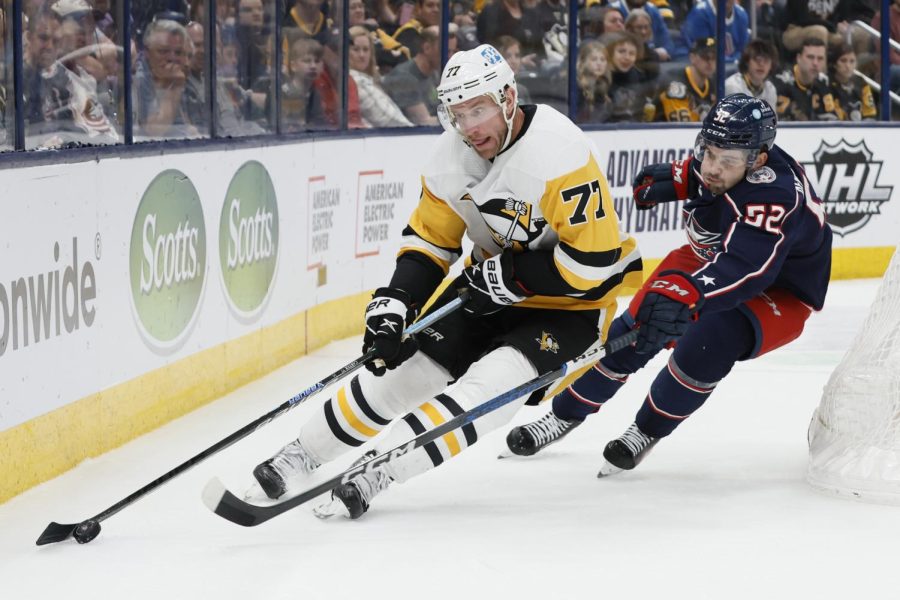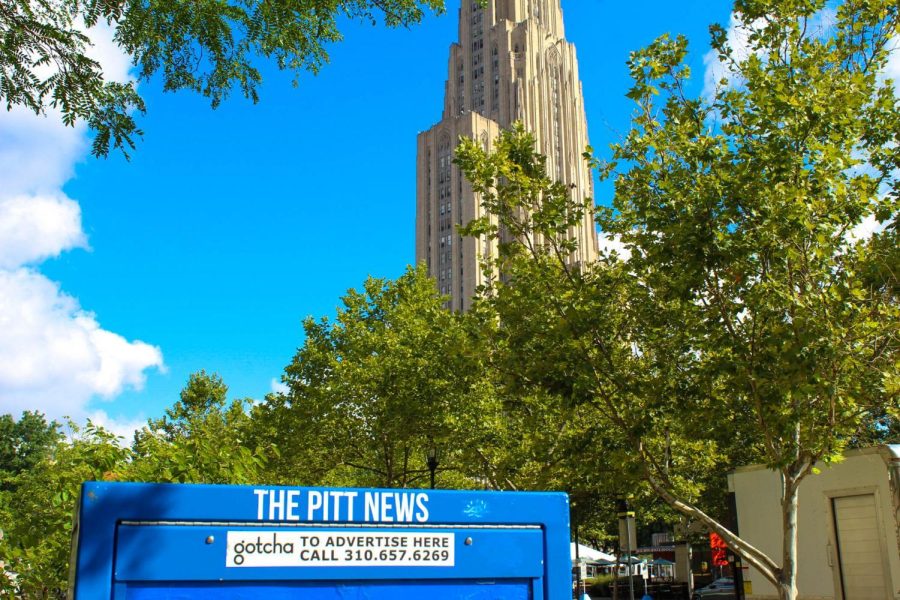Column | Keep the Penguins’ disappointing season in context
Pittsburgh Penguins’ Jeff Carter, left, carries the puck behind the net as Columbus Blue Jackets’ Emil Bemstrom defends during the third period of an NHL hockey game Thursday, April 13, 2023, in Columbus, Ohio.
April 18, 2023
As the clock hit zero in the Penguins’ final home game against the Chicago Blackhawks, the team was left with more questions than answers.
With the loss, the Penguins were eliminated from postseason play for the first time in 16 years. While those both within and outside of the organization had understood that the Penguins were not what they once were in the late 2010s, it wasn’t supposed to end with a humiliating home defeat to — by all accounts — one of the worst teams in the league.
But within that confusion and disappointment, it’s easy to forget that the Penguins have achieved more than just about every other team in sports over the last decade and a half.
Prior to Sidney Crosby’s arrival, the Penguins were an unmitigated disaster. There were rumors about the team moving to Kansas City, as the once proud franchise was once again reduced to a laughingstock.
Then, a few ping pong balls bounced the right way, and, as a result, the team was brought back from the dead.
Upon his arrival, the 18-year-old Crosby immediately had the weight of a city on his shoulders. The Penguins had just concluded the 2004-5 season with an abysmal 56 points, and despite the tremendous potential of the teenager from Nova Scotia, the team was asking a lot out of a kid who had never played a minute in the NHL.
Just under two decades later, Crosby and fellow 2000s draftees Evgeni Malkin and Kris Letang formed a trio for the ages. In the history of North American professional sports, only Yankees players Jorge Posada, Derek Jeter and Mariano Rivera have spent more time on the same team. Next year will mark No. 18 for the Pittsburgh trio, giving them sole possession of the longest tenured core of players in sports history.
The trio’s time has yielded three Stanley Cups, four Finals appearances and countless remarkable moments during the last decade and a half. In today’s era of free agency and lucrative contracts, this is unheard of.
So, as the Stanley Cup run begins for 16 of the league’s other teams, where does this leave the Penguins today?
There’s a glaring lack of hope surrounding the team for the first time in years — and reasonably so. Former general manager Ron Hextall made several head-scratching decisions prior to his firing just days after the team’s loss to Chicago, signaling a complete reset of the team’s upper management.
One of Hextall’s final acts was to acquire forward Mikael Granlund — a one-time 26-goal scorer for the Nashville Predators, who has since regressed dramatically. Not only has Granlund lost his scoring touch, but he has also become a defensive liability.
But Granlund’s biggest problem is one that he shares with several other of Hextall’s failed experiments — he’s expensive, with a $5 million cap hit.
In order to have sustained success in today’s NHL, teams not only need to develop and acquire talent, but do so for the right price. Developing cheap players was something the Penguins once did better than everyone else in the league.
Expensive contracts have put the Penguins behind the eight ball for the coming years. Their financial constraints handicap any hopes of acquiring much depth in the offseason. Also, due to trades made to fortify the Stanley Cup teams and others with playoff success in years past, there is not much in regards to young talent within the organization.
While there are likely dark days ahead for the organization, the Penguins and their fans have seemingly forgotten that this is extremely normal for just about every other team in sports. In all leagues with a salary cap, regression is a natural occurrence in the life cycle of a team — it just hasn’t happened for a while in Pittsburgh.
Fans have had the extremely rare chance to see three of the best players in the sport’s history on the same roster for a decade and a half. Not to mention, Crosby, Malkin and Letang will likely return next season and all continue to play at an extremely high level.
Do the Penguins have work to do as an organization? Sure. But take some time to appreciate one of the greatest runs in the history of modern professional sports.








